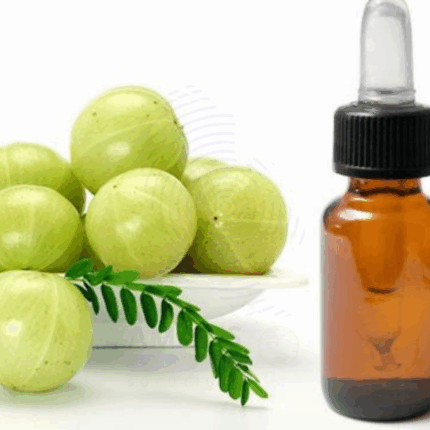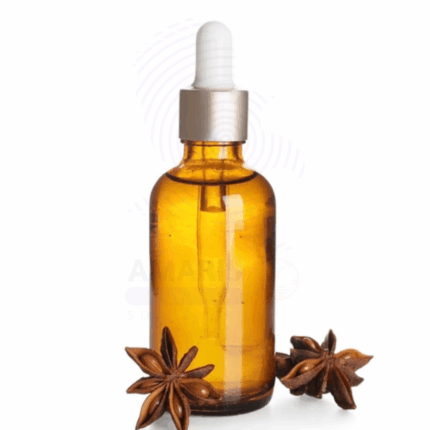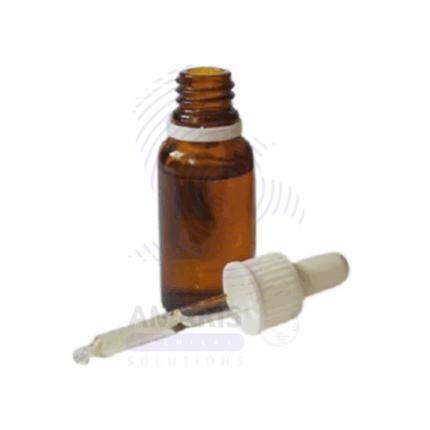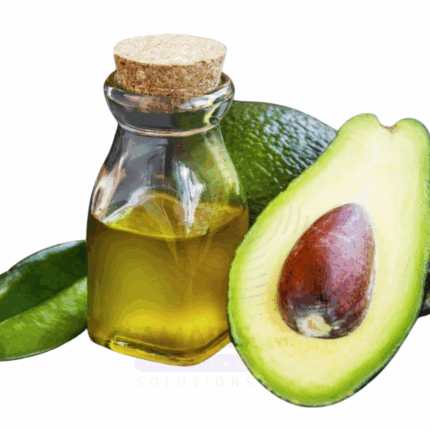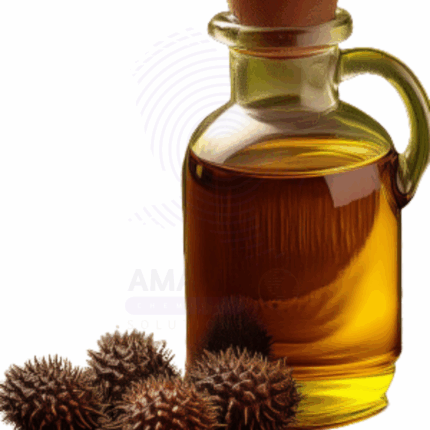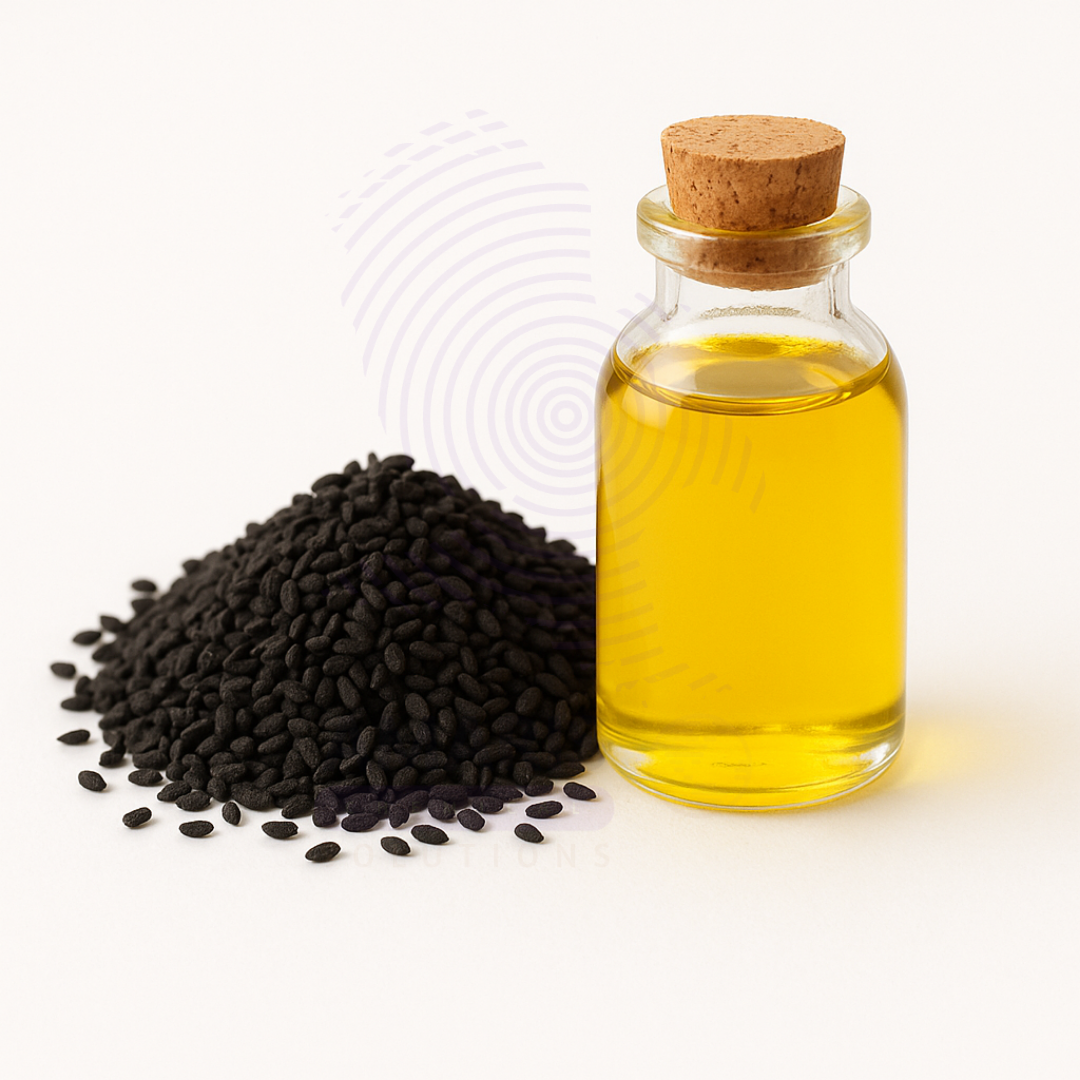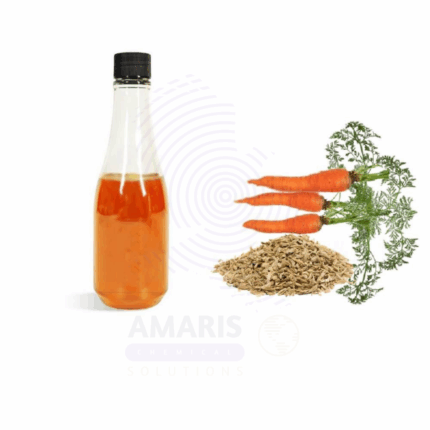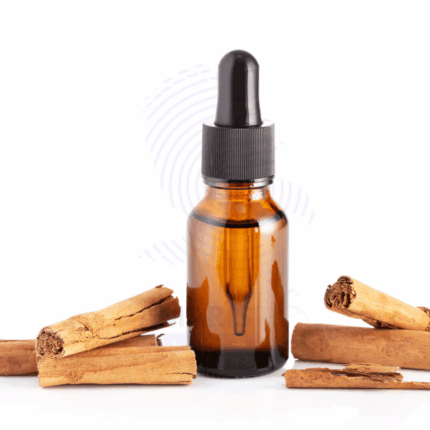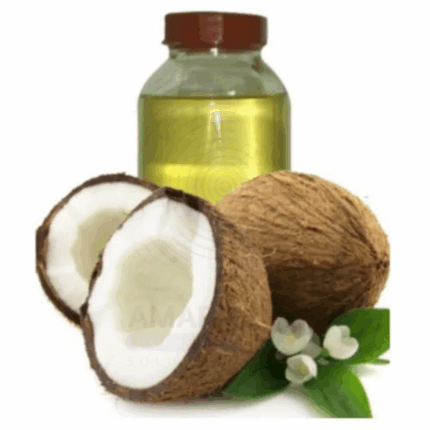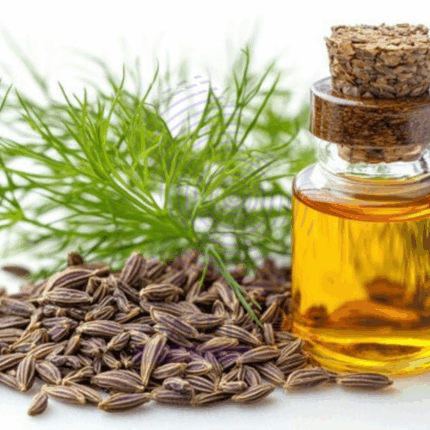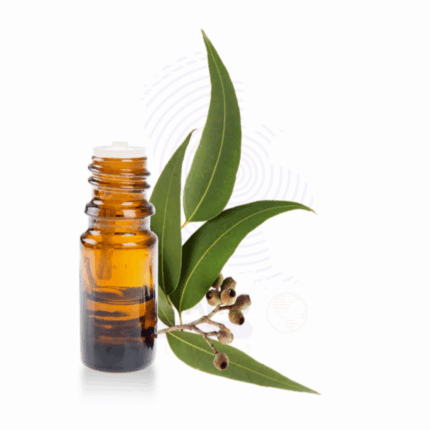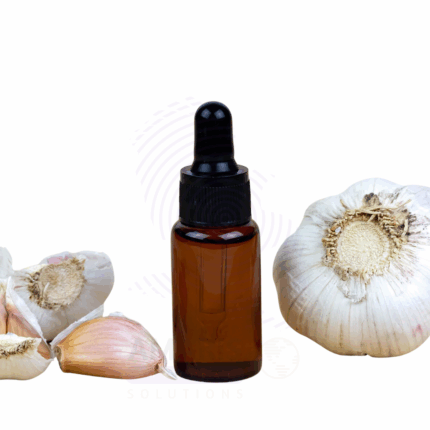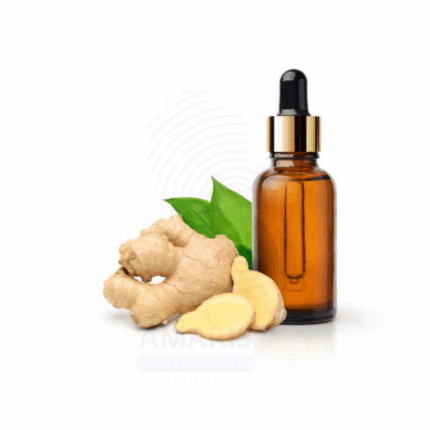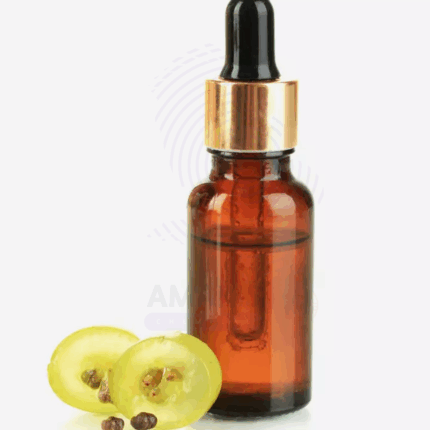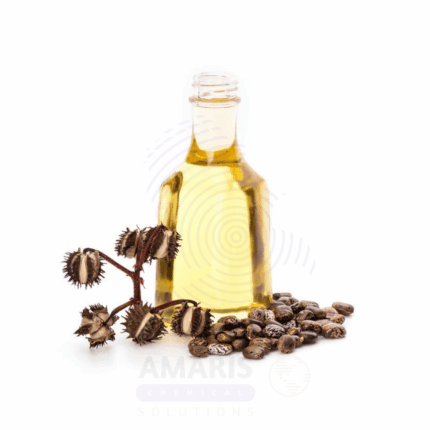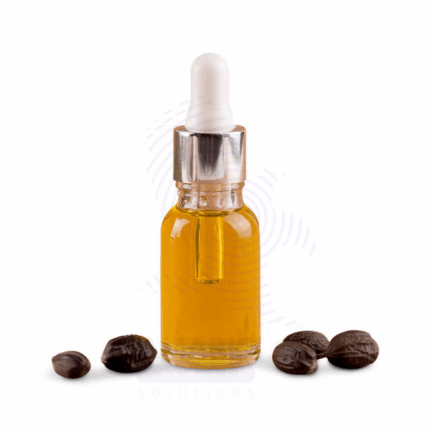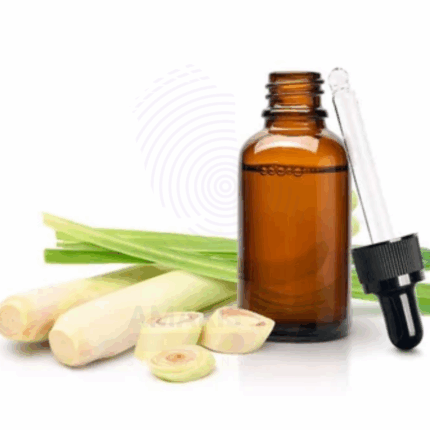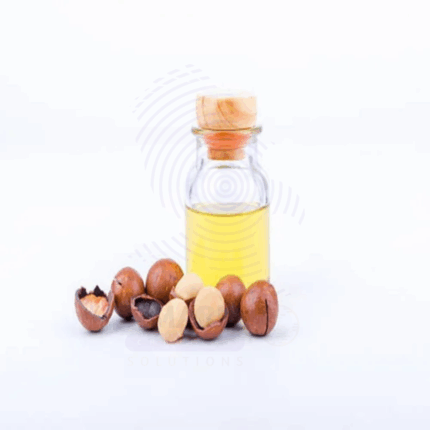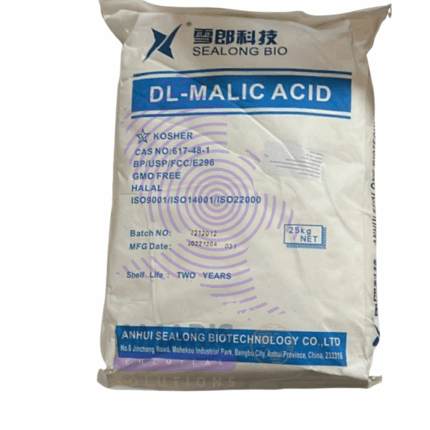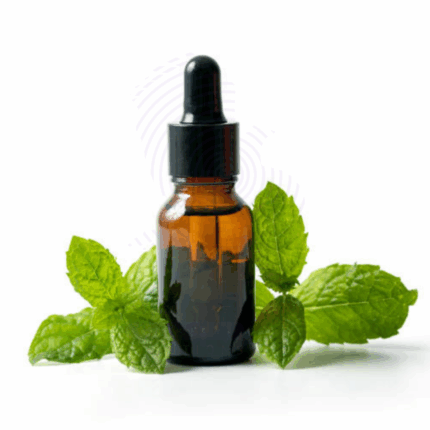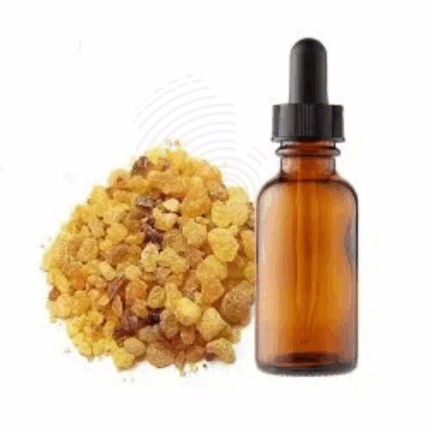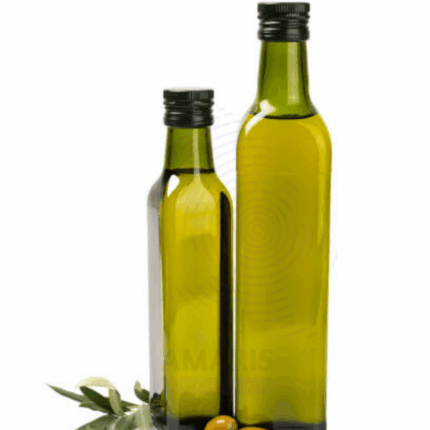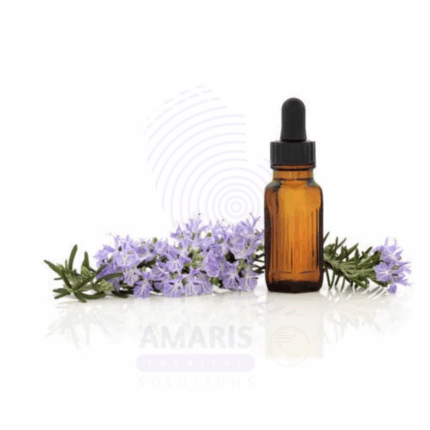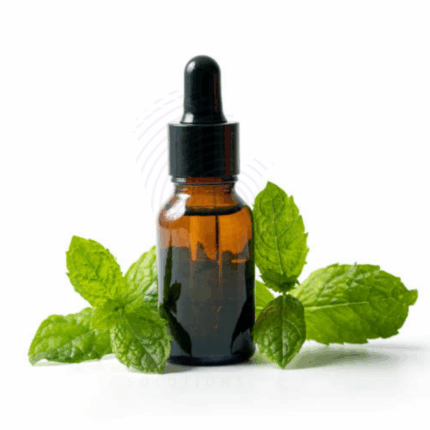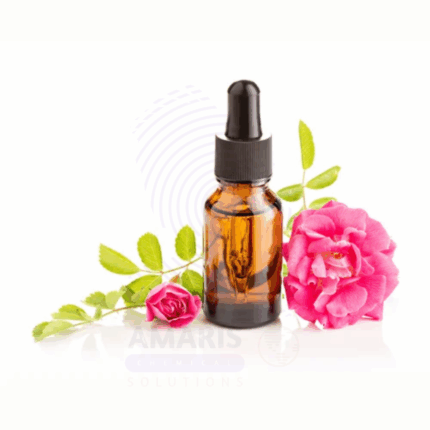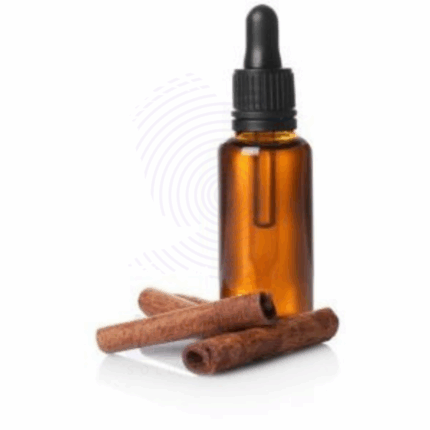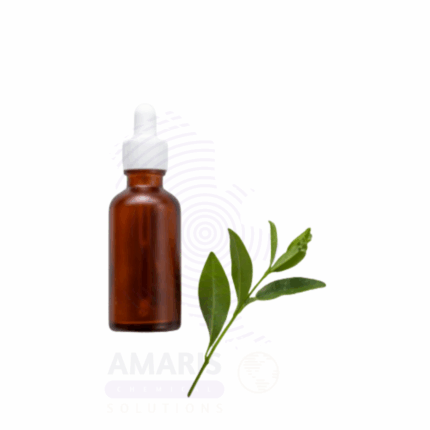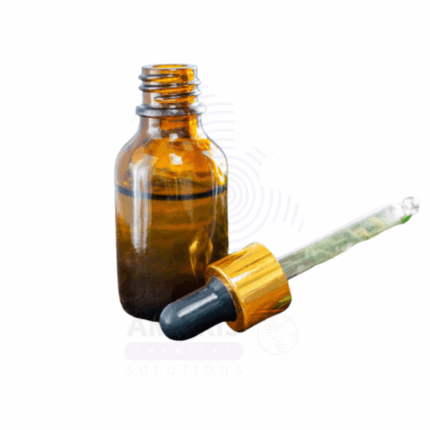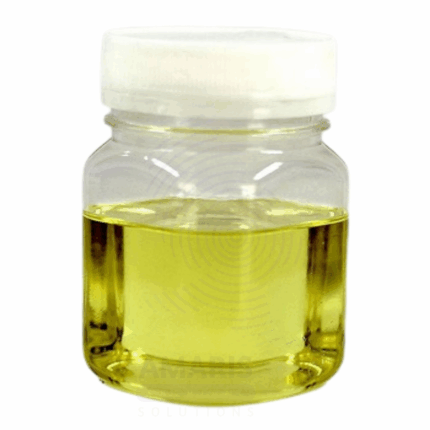Amla Oil
Amla Oil, also known as Indian Gooseberry Oil, is a natural oil derived from the fruit of the Phyllanthus emblica tree, either through infusion of dried amla fruits in a carrier oil (like coconut or sesame) or via cold pressing. Rich in vitamin C, tannins, flavonoids, and essential fatty acids, amla oil is renowned for its rejuvenating and nourishing properties. It is widely used in hair care formulations to promote hair growth, strengthen follicles, and reduce hair fall and premature greying. Amla oil is also applied topically to skin for its antioxidant, anti-inflammatory, and moisturizing benefits. With a slightly earthy aroma and light to medium viscosity, it blends easily with other cosmetic ingredients and essential oils.
It is a staple in Ayurvedic formulations and finds use in both personal care and traditional wellness products. Its versatility also extends to massage blends and herbal preparations in the cosmetic and nutraceutical sectors.
Aniseed Oil
Aniseed Oil is a natural essential oil extracted through steam distillation from the dried seeds of the anise plant (Pimpinella anisum). It is rich in anethole, which imparts a sweet, licorice-like aroma and taste. This oil is widely used in flavoring, perfumery, aromatherapy, and traditional medicine. Aniseed Oil possesses antimicrobial, antifungal, and carminative properties, making it valuable in both personal care and pharmaceutical applications. It blends well with other essential oils like fennel, clove, and cinnamon, and is commonly incorporated into oral care products, cough syrups, and digestive tonics.
Its highly concentrated aromatic profile and volatility make it effective even at low usage rates. With both functional and aromatic benefits, Aniseed Oil remains a versatile and in-demand natural extract across various industries.
Avocado Oil
Avocado Oil is a nutrient-rich, plant-based oil cold-pressed from the pulp of ripe avocados (Persea americana). Recognized for its deep green color and mildly nutty aroma, this oil is highly valued for its high content of monounsaturated fatty acids, especially oleic acid, along with vitamins A, D, and E, sterols, lecithin, and antioxidants.
Due to its excellent penetration, moisturizing, and regenerative properties, Avocado Oil is widely used in cosmetics, personal care, pharmaceutical, and nutraceutical formulations. It helps in restoring skin elasticity, promoting collagen synthesis, and soothing inflammation, making it ideal for dry, sensitive, or aging skin. In hair care, it strengthens and softens hair, improves scalp health, and reduces dandruff.
Additionally, refined, food-grade Avocado Oil is used in cooking due to its high smoke point and nutritional profile. It is also increasingly found in dietary supplements and therapeutic blends
Black Castor Oil
Black Castor Oil is a highly viscous, nutrient-dense oil extracted from roasted castor beans (Ricinus communis). Unlike traditional castor oil, this variant is produced by roasting the beans before pressing, resulting in a dark amber to black hue and a distinct, smoky aroma. The roasting process enhances the oil’s ricinoleic acid content, giving it superior anti-inflammatory, antimicrobial, and moisturizing properties.
It is widely used in cosmetic, personal care, and pharmaceutical formulations due to its ability to promote hair growth, strengthen roots, hydrate dry skin, and soothe scalp conditions. It also acts as a natural humectant, drawing moisture into skin and hair. In traditional wellness and therapeutic practices, Black Castor Oil is valued for its warming and circulatory-boosting effects.
Black Cumin Seed Oil
Black Cumin Seed Oil, also known as Nigella Sativa Oil or Black Seed Oil, is a cold-pressed oil extracted from the seeds of the Nigella sativa plant. Revered for centuries in traditional medicine systems like Ayurveda and Unani, this oil is packed with thymoquinone, essential fatty acids, vitamins, and antioxidants that contribute to its potent anti-inflammatory, antimicrobial, and immune-boosting properties.
It is widely used in cosmetic, pharmaceutical, and nutraceutical formulations. Black Cumin Seed Oil supports skin healing, helps reduce acne and inflammation, and can nourish scalp and hair follicles. Internally, it is known to promote digestive health, respiratory wellness, and immune system support. The oil has a slightly bitter, pungent aroma and golden to dark amber color. It is available in cosmetic, pharmaceutical, and food grades for varied applications.
Camphor White Oil
Camphor White Oil is a steam-distilled essential oil obtained from the wood of the Camphor tree (Cinnamomum camphora), primarily from the white fraction, which is rich in 1,8-cineole, camphor, and linalool. This fraction is the most commonly used in aromatherapy and topical preparations due to its potent but relatively balanced composition compared to brown or yellow fractions. The oil has a sharp, penetrating aroma with a cooling, medicinal character.
Traditionally used in topical pain relief, respiratory care, and soothing balms, Camphor White Oil is known for its anti-inflammatory, decongestant, antiseptic, and stimulating effects. It is widely used in cosmetics, personal care, pharmaceuticals, and aromatherapy formulations.
Coconut Oil Refined
Coconut Oil Refined is a purified oil extracted from dried coconut meat (copra) that undergoes refining, bleaching, and deodorizing (RBD) to remove impurities, odor, and flavor. The resulting oil is clear, colorless to pale yellow, with a neutral scent and a high smoke point, making it suitable for diverse applications. It is rich in medium-chain triglycerides (MCTs) that offer moisturizing, antimicrobial, and emollient properties. Refined Coconut Oil is widely used in cosmetic formulations, pharmaceutical excipients, food products, and cleaning agents for its versatility, stability, and skin-friendly characteristics.
Dill Seed Oil
Dill Seed Oil is an essential oil derived through steam distillation of the dried seeds of the Anethum graveolens plant. Compared to dill herb oil, this variant carries a stronger, spicier, and more pungent aroma with prominent caraway-like notes due to its high carvone content. It is traditionally valued for its digestive, carminative, antispasmodic, and antimicrobial properties.
Dill Seed Oil finds wide application across the pharmaceutical, food and beverage, cosmetic, and aromatherapy sectors. It is also used in perfumery, oral care, pet care, and household cleaning products for its aromatic and therapeutic qualities.
Eucalyptus Oil
Eucalyptus Oil is an essential oil extracted by steam distillation from the leaves of the Eucalyptus globulus tree. Known for its fresh, camphoraceous, and invigorating aroma, this oil is rich in cineole (eucalyptol), which imparts powerful antiseptic, decongestant, and anti-inflammatory properties. Widely used in pharmaceuticals, personal care, and cleaning products, eucalyptus oil supports respiratory health, acts as a natural insect repellent, and serves as a refreshing fragrance ingredient in aromatherapy and household applications. Its antimicrobial activity makes it valuable in topical formulations and natural disinfectants.
Garlic Oil
Garlic Oil is a potent essential oil extracted from the bulbs of the Allium sativum plant, primarily through steam distillation or solvent extraction. Known for its strong, pungent aroma and rich sulfur-containing compounds such as allicin, diallyl disulfide, and ajoene, Garlic Oil is widely recognized for its antimicrobial, antifungal, antiviral, and antioxidant properties. Traditionally used in herbal medicine, it has applications in pharmaceuticals, natural personal care products, food flavoring, and agricultural pest management. Its therapeutic properties also make it a valuable ingredient in formulations aimed at cardiovascular health and immune system support.
Ginger Oil
Ginger Oil is an essential oil extracted from the rhizomes of the Zingiber officinale plant, primarily through steam distillation. Known for its warm, spicy, and invigorating aroma, Ginger Oil contains bioactive compounds such as gingerol, zingiberene, and beta-bisabolene, which contribute to its therapeutic properties. Traditionally valued in Ayurveda and traditional medicine for digestive, anti-inflammatory, and analgesic benefits, Ginger Oil is widely used today in pharmaceuticals, cosmetics, flavoring, and aromatherapy. Its stimulating nature makes it effective for promoting circulation, relieving muscle pain, and enhancing mood.
Grape Seed Oil
Grape Seed Oil is a light, pale-yellow oil extracted from the seeds of grapes (Vitis vinifera), typically obtained through cold pressing or solvent extraction. Renowned for its high content of polyunsaturated fatty acids, especially linoleic acid, as well as antioxidants like vitamin E and phenolic compounds, Grape Seed Oil is prized for its nourishing, moisturizing, and anti-inflammatory properties. Widely used in cosmetics, skincare, pharmaceutical formulations, and culinary applications, it is valued for its non-greasy texture and rapid absorption. Grape Seed Oil supports skin elasticity, helps repair damaged skin, and provides a protective barrier against environmental stressors.
Hydrogenated Castor Oil
Hydrogenated Castor Oil, also known as castor wax, is a hard, brittle, and high-melting-point wax derived by the hydrogenation of pure castor oil. This white to off-white, odorless substance is non-toxic and insoluble in water but dispersible in surfactant systems. Its primary component is hydrogenated ricinoleic acid triglyceride, and it is prized for its excellent lubricating, emulsifying, thickening, and consistency-enhancing properties.
Due to its stability, non-reactivity, and film-forming capability, Hydrogenated Castor Oil is widely used in cosmetics, personal care, pharmaceuticals, industrial lubricants, coatings, plastics, and more. It improves product texture, enhances emulsion stability, and provides moisture retention in skincare applications.
Jojoba Oil
Jojoba Oil is a golden-yellow liquid wax extracted from the seeds of the jojoba plant (Simmondsia chinensis). Unlike typical vegetable oils, it is actually a liquid wax ester, closely resembling the natural oils (sebum) produced by human skin. This unique composition gives jojoba oil excellent moisturizing, conditioning, and balancing properties without clogging pores. It is highly stable, resistant to rancidity, and rich in antioxidants, vitamins E and B complex, and minerals. Widely used in cosmetics, personal care, and pharmaceutical products, jojoba oil supports skin hydration, protects against environmental damage, and promotes healthy hair.
Lemongrass Oil
Lemongrass Oil is a pale yellow to amber essential oil extracted primarily through steam distillation from the leaves and stalks of the Cymbopogon citratus or Cymbopogon flexuosus plants. Renowned for its fresh, citrusy, lemon-like aroma with subtle grassy undertones, this oil contains high levels of citral and limonene, compounds known for their antimicrobial, anti-inflammatory, and insect-repellent properties. Widely utilized in aromatherapy, personal care, pharmaceuticals, and natural cleaning products, lemongrass oil offers both fragrance and functional benefits. It is valued for its ability to invigorate the senses, reduce stress, and support skin health.
Macadamia Nut Oil
Macadamia Nut Oil is a rich, golden, cold-pressed oil extracted from the nuts of the Macadamia integrifolia tree. Known for its high content of monounsaturated fatty acids—particularly oleic and palmitoleic acid—it closely resembles the natural oils found in human skin. It is lightweight, non-greasy, and easily absorbed, making it ideal for cosmetic, personal care, and culinary applications.
Highly emollient and nourishing, Macadamia Nut Oil is used in skincare, haircare, massage blends, and anti-aging formulations. Its oxidative stability also makes it suitable for use in food products, including cooking oils and dressings. It provides deep moisturization, improves skin elasticity, and protects against environmental stressors.
Malic Acid
Malic Acid is a naturally occurring dicarboxylic acid found in many fruits, particularly apples, and is commonly used as a food additive, flavor enhancer, and acidulant. It is available in crystalline or powder form and has a strong, tart taste. Commercially, it is produced synthetically or extracted from natural sources. Malic Acid exists in two isomeric forms: L-malic acid (naturally occurring and biologically active) and DL-malic acid (synthetic racemic mixture). It is highly soluble in water and widely used in food, beverage, cosmetics, and pharmaceutical industries.
Mint Oil
Mint Oil, primarily derived from Mentha piperita (peppermint) or Mentha arvensis (cornmint), is a clear to pale yellow essential oil known for its sharp, fresh, and cooling aroma. Rich in menthol and menthone, this oil exhibits potent antiseptic, analgesic, and digestive properties. Mint Oil is widely used across aromatherapy, pharmaceuticals, personal care products, food flavoring, and natural cleaning agents. Its invigorating scent stimulates the senses, promotes mental clarity, and provides soothing relief in topical applications. Additionally, mint oil is valued for its cooling effect on the skin and its natural ability to deter insects.
Myrrh Oil
Myrrh Oil is a rich, amber-colored essential oil obtained through steam distillation of the resin extracted from the Commiphora myrrha tree. Known for its warm, earthy, and balsamic aroma, this ancient oil has been used for thousands of years in traditional medicine, perfumery, and sacred rituals. Myrrh Oil is revered for its powerful antiseptic, anti-inflammatory, astringent, and skin-healing properties. It plays a key role in supporting oral care, skin regeneration, emotional grounding, and immune defense. In modern applications, Myrrh Oil is widely used in premium cosmetic formulations, wellness therapies, and natural perfumery.
Olive Oil Virgin
Olive Oil Virgin is a natural oil obtained from the first cold pressing of olives without the use of chemicals or excessive heat, preserving its rich flavor and nutritional qualities. It is characterized by a fruity aroma and a balanced taste, containing high levels of monounsaturated fatty acids, particularly oleic acid, as well as antioxidants such as polyphenols and vitamin E. Virgin olive oil is widely valued for its health benefits, culinary versatility, and skin conditioning properties. It is extensively used in food preparation, cosmetic formulations, and pharmaceutical applications, offering moisturizing, antioxidant, and anti-inflammatory effects.
Palmarosa Oil
Palmarosa Oil is a highly valued essential oil obtained through steam distillation of the fresh grass Cymbopogon martinii, native to India. Known for its sweet, floral, and rose-like aroma, it is rich in geraniol, a natural compound with potent antimicrobial and anti-inflammatory properties. Palmarosa Oil is widely used in aromatherapy, natural skincare, and personal care formulations for its hydrating and rejuvenating effects. Its antimicrobial activity makes it popular in therapeutic blends, natural preservatives, and fragrance products. Additionally, it has applications in pharmaceutical, cleaning, and flavoring industries.
Peppermint Oil
Peppermint Oil is a refreshing essential oil obtained by steam distillation of the leaves and flowering tops of the Mentha × piperita plant. Renowned for its sharp, cool, and invigorating menthol aroma, it contains high levels of menthol and menthone, which contribute to its cooling, analgesic, and antimicrobial effects. Peppermint Oil is widely used across aromatherapy, pharmaceuticals, personal care, food flavoring, and cleaning products. Its stimulating and soothing properties make it popular for relieving headaches, muscle pain, digestive issues, and respiratory problems, while also adding a fresh scent to many formulations.
Rose Oil
Rose Oil, also known as Rosa Damascena Oil, is a highly valued essential oil extracted primarily through steam distillation of the petals of the Rosa damascena flower. Renowned for its rich, floral, and intoxicating aroma, Rose Oil is cherished in perfumery, cosmetics, and therapeutic applications. It contains key compounds like citronellol, geraniol, and nerol, which contribute to its soothing, anti-inflammatory, and antiseptic properties. Rose Oil is widely used for skin rejuvenation, mood enhancement, and as a luxurious fragrance component, making it an essential ingredient in high-end skincare and aromatherapy products.
Sandalwood Oil
Sandalwood Oil is a premium-grade essential oil extracted primarily from the heartwood of the Santalum album tree, native to India, Indonesia, and Australia. Obtained through steam distillation, this oil is renowned for its rich, woody, creamy, and long-lasting aroma with subtle balsamic and sweet undertones. Its therapeutic properties are largely attributed to its high santalol content, particularly alpha- and beta-santalol, which provide anti-inflammatory, antimicrobial, and calming effects.
Sandalwood Oil has been revered in traditional medicine, spiritual rituals, and perfumery for centuries. Today, it is widely used in cosmetics, aromatherapy, personal care products, and high-end fragrances. Its grounding and meditative qualities make it a popular ingredient in mindfulness formulations, skincare treatments, and luxurious spa products.
Sunflower Oil
Sunflower Oil is a versatile vegetable oil extracted from the seeds of Helianthus annuus, native to North America but now cultivated globally. It is commonly obtained through cold pressing or refining and is valued for its light texture, neutral scent, and high content of essential fatty acids—particularly linoleic and oleic acids—as well as natural tocopherols (vitamin E). With excellent antioxidant, emollient, and anti-inflammatory properties, Sunflower Oil is widely used in food products, skincare formulations, hair care, massage therapies, and pharmaceutical preparations. Its ability to nourish and protect the skin barrier makes it a key ingredient across both wellness and industrial markets.
Tea Tree Oil
Tea Tree Oil is a potent essential oil steam-distilled from the leaves of Melaleuca alternifolia, a native Australian plant known for its broad antimicrobial spectrum. It features a fresh, medicinal, camphoraceous aroma with herbal and slightly spicy undertones. Rich in terpinen-4-ol, gamma-terpinene, and alpha-terpinene, Tea Tree Oil is celebrated for its antibacterial, antifungal, antiviral, and anti-inflammatory properties. It has a long history of use in traditional and modern natural medicine, skincare, and hygiene products worldwide.
Thyme Oil
Thyme Oil is a potent essential oil obtained by steam distillation from the leaves and flowering tops of the Thymus vulgaris plant, native to the Mediterranean region. Known for its warm, herbaceous, and slightly spicy aroma, Thyme Oil contains key bioactive compounds such as thymol, carvacrol, and linalool. These constituents contribute to its powerful antimicrobial, antiseptic, anti-inflammatory, and antioxidant properties. Traditionally used in herbal medicine for respiratory ailments, digestive support, and wound healing, Thyme Oil is now widely applied in aromatherapy, cosmetics, natural health products, and cleaning formulations. Its effectiveness and aromatic complexity make it an essential ingredient across diverse industries.
Turpentine Oil
Turpentine Oil is a volatile essential oil distilled from the resin of pine trees (primarily Pinus species). It is a colorless to pale yellow fluid with a strong, distinctive odor, composed mainly of terpenes such as alpha-pinene and beta-pinene. Traditionally used as a solvent and medicinal agent, turpentine oil has broad applications across industrial, pharmaceutical, and agricultural sectors. Its natural origin and unique chemical profile also make it valuable in fragrance, flavoring, and organic synthesis.


 Acidulants
Acidulants Antioxidants
Antioxidants Nutraceutical Ingredients (food)
Nutraceutical Ingredients (food)
 Collectors
Collectors Dust Suppressants
Dust Suppressants Explosives and Blasting Agents
Explosives and Blasting Agents Flocculants and Coagulants
Flocculants and Coagulants Frothers
Frothers Leaching Agents
Leaching Agents pH Modifiers
pH Modifiers Precious Metal Extraction Agents
Precious Metal Extraction Agents
 Antioxidants(plastic)
Antioxidants(plastic) Colorants (Pigments, Dyes)
Colorants (Pigments, Dyes) Fillers and Reinforcements
Fillers and Reinforcements Flame Retardants
Flame Retardants Monomers
Monomers Plasticizers
Plasticizers Polymerization Initiators
Polymerization Initiators Stabilizers (UV, Heat)
Stabilizers (UV, Heat)
 Antifoaming Agents
Antifoaming Agents Chelating Agents
Chelating Agents Coagulants and Flocculants
Coagulants and Flocculants Corrosion Inhibitors
Corrosion Inhibitors Disinfectants and Biocides
Disinfectants and Biocides Oxidizing Agents
Oxidizing Agents pH Adjusters
pH Adjusters Scale Inhibitors( water)
Scale Inhibitors( water)
 Antioxidants(cosmetic)
Antioxidants(cosmetic) Emollients
Emollients Fragrances and Essential Oils
Fragrances and Essential Oils Humectants
Humectants Preservatives
Preservatives Surfactants(cosmetic)
Surfactants(cosmetic) Thickeners
Thickeners UV Filters
UV Filters
 Fertilizers
Fertilizers Soil Conditioners
Soil Conditioners Plant Growth Regulators
Plant Growth Regulators Animal Feed Additives
Animal Feed Additives Biostimulants
Biostimulants Pesticides (Herbicides, Insecticides, Fungicides)
Pesticides (Herbicides, Insecticides, Fungicides)
 Active Pharmaceutical Ingredients (APIs)
Active Pharmaceutical Ingredients (APIs) Excipients
Excipients Solvents(pharmaceutical)
Solvents(pharmaceutical) Antibiotics
Antibiotics Antiseptics and Disinfectants
Antiseptics and Disinfectants Vaccine Adjuvants
Vaccine Adjuvants Nutraceutical Ingredients (pharmaceutical)
Nutraceutical Ingredients (pharmaceutical) Analgesics & Antipyretics
Analgesics & Antipyretics
 Analytical Reagents
Analytical Reagents Chromatography Chemicals
Chromatography Chemicals Spectroscopy Reagents
Spectroscopy Reagents Molecular Biology Reagents
Molecular Biology Reagents Biochemical Reagents
Biochemical Reagents Inorganic and Organic Standards
Inorganic and Organic Standards Laboratory Safety Chemicals
Laboratory Safety Chemicals Specialty Laboratory Chemicals(Special Laboratory Equipment)
Specialty Laboratory Chemicals(Special Laboratory Equipment)
 Demulsifiers
Demulsifiers Hydraulic Fracturing Fluids
Hydraulic Fracturing Fluids Scale Inhibitors(oil)
Scale Inhibitors(oil) Surfactants(oil)
Surfactants(oil) Drilling Fluids
Drilling Fluids
 Dyes and Pigments
Dyes and Pigments Bleaching Agents
Bleaching Agents Softening Agents
Softening Agents Finishing Agents
Finishing Agents Antistatic Agents
Antistatic Agents
 Admixtures
Admixtures Waterproofing Agents
Waterproofing Agents Sealants and Adhesives
Sealants and Adhesives Curing Compounds
Curing Compounds Concrete Repair Chemicals
Concrete Repair Chemicals Anti-Corrosion Coatings
Anti-Corrosion Coatings
 Surfactants(cleaning)
Surfactants(cleaning) Builders
Builders Enzymes
Enzymes Solvents (Cleaning)
Solvents (Cleaning) Fragrances
Fragrances
 Electronic Chemicals
Electronic Chemicals Catalysts
Catalysts Lubricants
Lubricants Photographic Chemicals
Photographic Chemicals Refrigerants
Refrigerants Automotive chemicals
Automotive chemicals Pyrotechnic Chemicals
Pyrotechnic Chemicals
 Biodegradable Surfactants
Biodegradable Surfactants Bio-based Solvents
Bio-based Solvents Renewable Polymers
Renewable Polymers Carbon Capture Chemicals
Carbon Capture Chemicals Wastewater Treatment Chemicals
Wastewater Treatment Chemicals
 Pigments
Pigments Solvents(paint)
Solvents(paint) Specialty Coatings
Specialty Coatings Binders/Resins
Binders/Resins Additives
Additives Driers
Driers Anti-Corrosion Agents
Anti-Corrosion Agents Functional Coatings
Functional Coatings Application-Specific Coatings
Application-Specific Coatings
 Fresh Herbs
Fresh Herbs Ground Spices
Ground Spices Whole Spices
Whole Spices Spice Blends
Spice Blends Dried Herbs
Dried Herbs
 Leavening Agents
Leavening Agents Dough Conditioners
Dough Conditioners Flour Treatments
Flour Treatments Fat Replacers
Fat Replacers Decoratives
Decoratives Preservatives(baking)
Preservatives(baking)
 Plasticizers & Softeners
Plasticizers & Softeners Reinforcing Agents
Reinforcing Agents Adhesion Promoters
Adhesion Promoters Vulcanizing Agents
Vulcanizing Agents Antidegradants
Antidegradants Blowing Agents
Blowing Agents Fillers & Extenders
Fillers & Extenders Accelerators & Retarders
Accelerators & Retarders

















